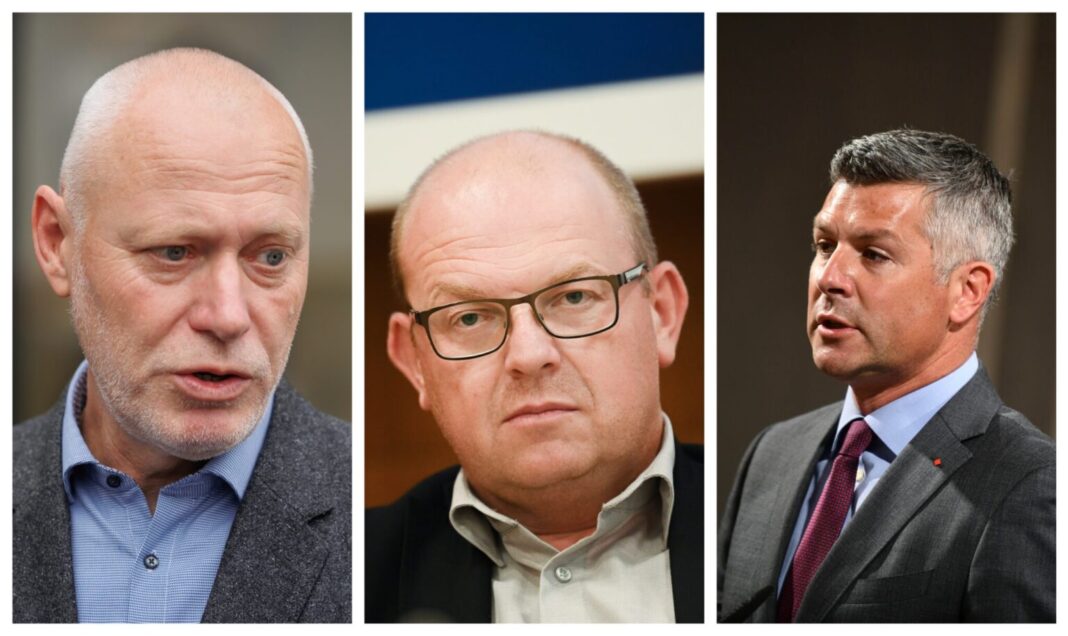By: Gal kovač / Nova24tv
On Thursday, the European Parliament voted in plenary to recognise the Holodomor, the Soviet-orchestrated famine of 1932-1933, as a genocide of the Ukrainian people. “In a resolution adopted on Thursday, the European Parliament recognises the Holodomor, the artificial famine of 1932-1933 in Ukraine caused by a deliberate policy of the Soviet regime, as a genocide against the Ukrainian people, as it was committed with the intent to destroy a group of people by deliberately inflicting conditions of life calculated to bring about its physical destruction,” reads the text of the resolution. Once again, Slovenian Members of the European Parliament from the political left avoided the vote. Milan Brglez (the Social Democrats party – Socialni demokrati, SD) did not vote on the matter, and Matjaž Nemec (SD) and Klemen Grošelj (SD) fled on the pretext that they had to return to Slovenia.
This is the second time that MEPs from Slovenia’s left-wing parties have avoided voting. The first such case was the vote on the resolution on the recognition of Russia as a state sponsor of terrorism. Namely, at the time, Slovenian left-wing MEPs Milan Brglez, Matjaž Nemec, Klemen Grošelj and Irena Joveva also avoided the vote. After the vote, Brglez, a professor of international relations, gave a lengthy explanation of the vote. You can read more about his reasons and why he does not find Russia’s targeting of Ukraine’s civilian infrastructure alarming enough to condemn it, even with a vote in favour of the resolution, in an article (written in Slovenian) here.
Almost all of the MEPs voted in favour of the resolution, given that all the major parliamentary groups were the proposers. Only 12 MEPs voted against the resolution, and 17 abstained; and Brglez, Nemec and Grošelj apparently did not take part in the vote. The one bright exception to this vote was Irena Joveva, who surprisingly voted in favour of the resolution. Milan Zver (Slovenian Democratic Party – Slovenska demokratska stranka, SDS), Romana Tomc (SDS), Ljudmila Novak (New Slovenia party – Nova Slovenija, NSi) and Franc Bogovič (Slovenian People’s Party – Slovenska ljudska stranka, SLS) voted in favour of the resolution.
The European Parliament: Russia should also recognise the genocide
The European Parliament, in line with basic historical facts, called on Russia “as the primary successor of the Soviet Union, to officially recognise the Holodomor and apologise for these crimes.” Furthermore, the European Parliament called on “all countries and international organisations that have not yet recognised the Holodomor as genocide to do so.”
The European Parliament also stated that it “strongly condemns these genocidal acts of the totalitarian Soviet regime, which resulted in the death of millions of Ukrainians and severely damaged the foundations of Ukrainian society.” “[The European Parliament] calls on all countries, in particular the Russian Federation and other countries which emerged following the break-up of the Soviet Union, to open up their archives on the artificial famine of 1932-1933 in Ukraine,” MEPs wrote in the resolution.
The full text of the resolution is available here.
Does the Slovenian left fail to recognise the Holodomor?
Members of the Slovenian left will find it difficult to avoid a serious questioning of conscience this time. If, when voting on the acceleration of candidate status for Ukraine, former MEP Tanja Fajon (now Minister of Foreign Affairs) was still able to excuse her vote against because of the potential escalation of the situation, and Brglez, when voting on the resolution designating Russia a terrorist state, excused himself on the basis of alleged parochial interests and geopolitical reasons, the space for excuses is now shrinking irreversibly. The Holodomor is a universally recognised historical fact, and the victims, who number in the millions, have names and surnames. By not voting in favour of this resolution, the Slovenian left-wing Members of the European Parliament have placed themselves on the political and, above all, the moral fringes of European society. It is a position that they will find increasingly difficult to maintain in the future, and there will be less and less room for politicians of their kind in the ranks of the European Union. There is practically none left already.
Grošelj and Nemec subsequently made excuses that they had to travel back to Slovenia, so they were absent from the session in question (how convenient), but Brglez admitted that he had abstained. Why? He repeated his rhetorical game from the time when he voted against the resolution declaring Russia a terrorist state. Once again, he said that the declaration would not help to end the war in Ukraine and that “with such a resolution, the European Parliament is disqualifying itself as an actor that could help to find a solution to end Russia’s aggression against Ukraine as soon as possible and to end the immense suffering of the people of Ukraine.” So, it seems that Brglez sees the way to peace in Kissinger-like diplomacy – namely, a fascist regime must not be told diplomatically that it is fascist and that its ancestor committed genocide in the past against the same people it is attacking today.

